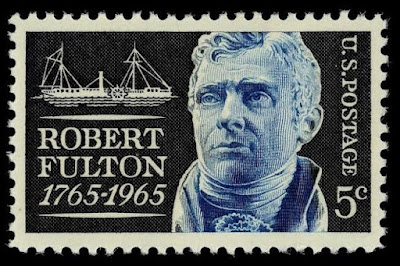Robert Fulton (November 14, 1765 – February 24, 1815) was an American engineer and inventor who is widely credited with developing the world's first commercially successful steamboat, the North River Steamboat (also known as Clermont). In 1807, that steamboat traveled on the Hudson River with passengers from New York City to Albany and back again, a round trip of 300 nautical miles (560 kilometers), in 62 hours. The success of his steamboat changed river traffic and trade on major American rivers.
In 1800, Fulton had been commissioned by Napoleon Bonaparte, leader of France, to attempt to design a submarine; he produced Nautilus, the first practical submarine in history.Fulton is also credited with inventing some of the world's earliest naval torpedoes for use by the Royal Navy.
Fulton became interested in steam engines and the idea of steamboats in 1777 when he was around age 12 and visited state delegate William Henry of Lancaster, Pennsylvania, who was interested in this topic. Henry had learned about inventor James Watt and his Watt steam engine on an earlier visit to England.

No comments:
Post a Comment